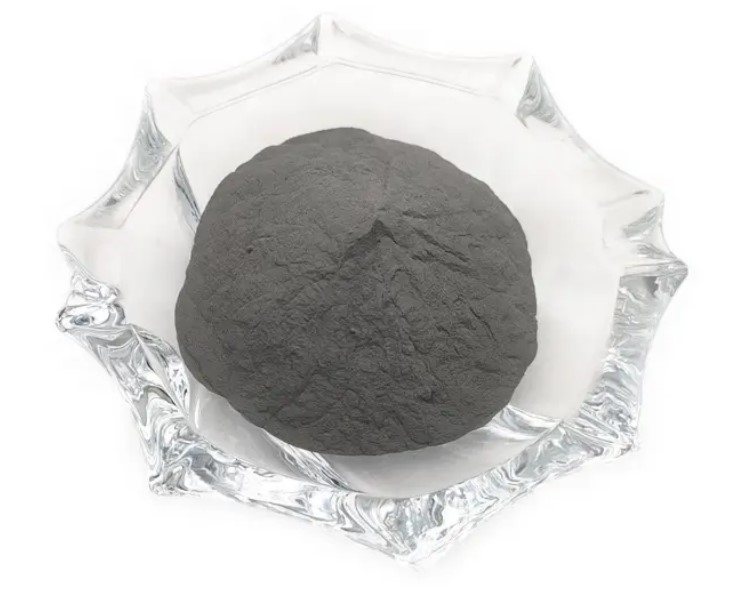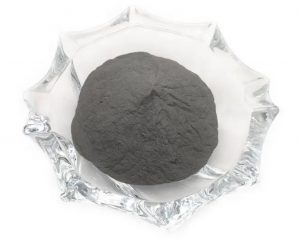Advancements in Ta10W Powders: Meeting the Demands of Modern Manufacturing

Introduction
The field of manufacturing has witnessed significant advancements over the years, driven by the need for innovative and high-performance materials. Ta10W powders, a tantalum-tungsten alloy, have emerged as a game-changing material that meets the demands of modern manufacturing. With their unique properties and versatility, Ta10W powders have paved the way for enhanced performance, efficiency, and sustainability in various industries. In this article, we will explore the recent advancements in Ta10W powders and their impact on modern manufacturing.

Ta10W Powder
What Are Ta10W Powders?
The tantalum tungsten alloys have 3 variants: Ta2.5W has 2.5% tungsten and 0.5% niobium, Ta7.5W has 7.5% tungsten, while Ta10W possesses 10% tungsten. These alloys have a high melting point of 3005-3030 °C and a large density of 16.7-16.9 g/cm3. Related reading: What Are the Uses of Tantalum and Its Alloys? Ta10W powders exhibit the characteristics and properties associated with the Ta10W alloy, such as high hardness, excellent wear resistance, good thermal and electrical conductivity, and high melting point. With these features, Ta10W powders are applied to the chemical processing industry and heater exchange industry.
Ta10W Powders for Modern Manufacturing
1. Advancements in Powder Production Techniques for Ta10W
Fine Powder Production
Recent advancements in powder production techniques have allowed for the production of Ta10W powders with improved particle size distribution and purity. Fine powder particles offer several advantages, including better flowability, increased packing density, and enhanced surface area. These improvements enable more efficient processing and improved properties of the final components. Fine Ta10W powders are particularly beneficial in additive manufacturing processes, such as 3D printing, where precise control of powder characteristics is crucial for achieving high-quality parts.
Alloy Composition Optimization
Researchers and material scientists are continuously exploring ways to optimize the composition of Ta10W powders to enhance their properties further. Fine-tuning the alloy composition allows for tailoring the material's characteristics to specific applications. For example, adjusting the tantalum-to-tungsten ratio can influence the alloy's mechanical properties, such as strength and ductility. By optimizing the composition, manufacturers can obtain Ta10W powders with properties that precisely match the requirements of their intended applications, resulting in more efficient and reliable components.
Surface Treatment Techniques
Surface treatment techniques have been developed to enhance the performance and functionality of Ta10W powders. Surface modifications can improve powder flowability, reduce agglomeration, and enhance adhesion between the powder particles and binders in additive manufacturing processes. These techniques also contribute to better powder dispersion and interfacial bonding in powder metallurgy and sintering processes, leading to improved densification and mechanical properties of the final components.
2. Additive Manufacturing Innovations and Application
Additive manufacturing, or 3D printing, has revolutionized the manufacturing industry by enabling the production of complex geometries and customized components. Ta10W powders have played a significant role in advancing additive manufacturing techniques. The unique properties of Ta10W powders, such as their strength, high-temperature stability, and corrosion resistance, make them highly suitable for additive manufacturing applications in aerospace, defense, and medical industries. The aerospace field uses Ta10W powder to produce lightweight components, which can improve the fuel efficiency and overall performance of aircraft and spacecraft. The defense industry utilizes these powders to create strong and durable military equipment and vehicle parts. In the medical field, Ta10W powder is favored for its biocompatibility and long-term reliability, making it ideal for the production of implants and prosthetics. Using Ta10W powders in additive manufacturing offers several benefits. Manufacturers can now produce lightweight, durable, and intricately designed parts with ease, leading to improved performance and reduced material waste.
3. Application Expansion
The advancements in Ta10W powders have opened doors for their application expansion into new industries and fields. Ta10W powders are increasingly being explored for use in energy storage, high-temperature electronics, and chemical processing applications. In energy storage, Ta10W powder has great potential in the development of advanced batteries and fuel cells. It is ideal for high-performance energy storage systems, especially for applications such as electric vehicles and renewable energy technologies. By using Ta10W powder, energy storage devices can benefit from greater efficiency, durability, and safety, driving the advancement of sustainable energy solutions. In high-temperature electronics, Ta10W powder is suitable for applications that require reliable performance at elevated temperatures, such as in aerospace engine components, power electronics, and sensors. Ta10W powder possesses the capability to enable the creation of electronic devices that can operate seamlessly in extreme environments, without compromising their functionality or structural integrity. In chemical processing, Ta10W powder finds applications in catalysts and reactors for a wide range of industrial processes. The powder can significantly enhance the efficiency and longevity of chemical processing equipment, resulting in improved productivity and cost-effectiveness. Apart from the applications mentioned before, the exceptional strength, high-temperature stability, and corrosion resistance of Ta10W powders make them suitable for many other demanding environments where traditional materials may not perform optimally. As research and development continue to progress, new applications and opportunities for Ta10W powders are likely to emerge, further driving advancements in modern manufacturing.
Conclusion
In a word, advancements in Ta10W powders have had a profound impact on modern manufacturing. The improvements in powder production, alloy composition optimization, and surface treatment techniques have propelled Ta10W powders to the forefront of material innovation. Their unique properties make them ideal for a wide range of industries, such as additive manufacturing, energy storage, high-temperature electronics, and chemical processing applications. As the manufacturing landscape continues to evolve, Ta10W powders will undoubtedly play a crucial role in meeting the demands of modern manufacturing and driving further advancements in the field. Advanced Refractory Metals (ARM) provides high-quality Ta10W alloys at reasonable prices. Welcome to visit our site.
{{item.content}}
LEVE A REPLY
{{item.children[0].content}}
{{item.content}}






